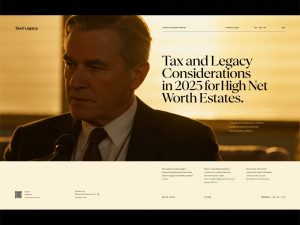The Evolving Role of Luxury Asset Investment Advisors in Wealth Preservation In the sophisticated landscape of high-net-worth wealth management, luxury asset investment advisors have emerged as indispensable partners for affluent individuals seeking to navigate the complex intersection of passion investments and strategic portfolio diversification. These specialized professionals bring a unique blend of financial acumen, market expertise, and connoisseurship to the table, enabling clients to make informed decisions about acquiring, managing, and leveraging luxury assets that often represent significant portions of their overall net worth. The
advisory process typically begins with comprehensive assessment of the client’s financial objectives, risk tolerance, liquidity requirements, and personal interests to develop a customized strategy that aligns luxury acquisitions with broader wealth preservation goals. Advisors conduct thorough due diligence on potential investments, evaluating factors such as historical appreciation trends, market liquidity, maintenance costs, insurance requirements, and potential tax implications that might impact the overall investment thesis. The advisory relationship extends beyond mere transaction facilitation to include ongoing portfolio management, performance monitoring, and strategic repositioning recommendations based on evolving market conditions and client circumstances. Successful luxury asset advisors maintain extensive networks of specialists including appraisers, conservators, storage facility operators, and transaction facilitators who can provide specialized expertise when needed. The value proposition of these advisors lies in their ability to identify undervalued opportunities, negotiate favorable terms, structure transactions optimally, and provide ongoing management that maximizes both financial returns and personal enjoyment from luxury asset ownership. As the luxury market continues to evolve with technological innovations, changing consumer preferences, and global economic shifts, the role of specialized advisors becomes increasingly critical for investors seeking to build diversified portfolios that include tangible assets with potential for capital appreciation and personal fulfillment.Strategic Implementation of Private Equity Wealth Solutions The domain of private equity wealth solutions represents a sophisticated approach to portfolio management that offers qualified investors access to exclusive investment opportunities typically unavailable through traditional public markets. These solutions encompass a range of strategies including direct private equity investments, venture capital partnerships, growth equity allocations, and distressed debt opportunities that collectively provide diversification benefits and potential for enhanced returns compared to conventional asset classes. The implementation process involves careful fund selection based on thorough due diligence of general partner track records, investment strategies, team expertise, and
alignment of interests between managers and investors. Private equity wealth solutions typically feature longer investment horizons that allow managers to execute value creation strategies without the quarterly performance pressures faced by public market investors, potentially leading to superior risk-adjusted returns over complete market cycles. The illiquidity premium associated with these investments often translates into higher expected returns for investors willing to commit capital for extended periods, while the private nature of these transactions frequently provides greater transparency regarding underlying portfolio companies and investment strategies compared to public market alternatives. Portfolio construction considerations include appropriate sizing of private equity allocations relative to overall portfolio value, careful timing of capital commitments to avoid concentration risk, and strategic planning for potential capital calls that might impact liquidity management. The wealth solution framework also incorporates tax optimization strategies, estate planning integration, and intergenerational wealth transfer considerations that ensure private equity investments align with the client’s comprehensive financial objectives. Ongoing monitoring and performance evaluation involve regular reporting from general partners, benchmarking against relevant indices, and assessment of portfolio company developments that might impact investment outcomes. The sophisticated nature of private equity wealth solutions requires advisors with deep expertise in alternative investments, strong analytical capabilities, and extensive industry networks to identify the most compelling opportunities and structure investments optimally for each client’s specific circumstances and objectives.Opportunities in Private Real Estate Investments for Portfolio Diversification
The landscape of private real estate investments offers compelling opportunities for sophisticated investors seeking to enhance portfolio diversification, generate attractive income streams, and achieve capital appreciation through strategic property acquisitions and development projects. These investments encompass various property types including residential, commercial, industrial, hospitality, and specialized real estate assets that each present unique risk-return characteristics and market dynamics. The investment process typically begins with comprehensive market analysis to identify geographic regions and property sectors demonstrating strong fundamentals, favorable supply-demand dynamics, and potential for value creation through active management or development initiatives. Due diligence procedures involve thorough assessment of property conditions, tenant quality, lease structures, operating expenses, regulatory considerations, and environmental factors that might impact investment performance and risk profiles. Private real estate investments often provide inflation hedging benefits through contractual rent escalations and potential for property value appreciation during inflationary periods, making them valuable components of long-term wealth preservation strategies. The illiquid nature of direct real estate investments frequently results in higher potential returns compared to publicly traded REITs, while the ability to implement value-add strategies through property improvements, lease renegotiations, or operational enhancements can create additional upside potential for skilled investors. Portfolio construction considerations include appropriate diversification across property types, geographic regions, and risk profiles to mitigate concentration risk while optimizing overall portfolio characteristics. Financing strategies often leverage mortgage debt to enhance returns through positive leverage when borrowing costs are lower than property yields, though careful attention to loan terms, covenant packages, and refinancing risks is essential for successful execution. Tax optimization strategies including depreciation benefits, 1031 exchange opportunities, and opportunity zone investments can significantly enhance after-tax returns for real estate investors with proper planning and execution. The management-intensive nature of private real estate investments necessitates either direct operational expertise or relationships with qualified property management firms that can execute business plans effectively while maintaining asset quality and tenant satisfaction. The cyclical nature of real estate markets requires disciplined investment timing, patient capital deployment, and strategic exit planning to maximize returns across complete market cycles while managing risks associated with economic downturns, interest rate changes, and sector-specific challenges.
Specialized Yacht and Jet Financing Solutions for Luxury Asset Acquisition
The realm of yacht and jet financing solutions provides sophisticated financing structures that enable high-net-worth individuals to acquire luxury transportation assets while optimizing capital allocation and preserving liquidity for other investment opportunities. These specialized financing solutions encompass various structures including traditional marine and aviation mortgages, lease arrangements, charter management programs, and asset-backed lending facilities that each offer distinct advantages depending on the client’s financial circumstances, usage patterns, and strategic objectives. The financing process typically begins with comprehensive assessment of the client’s credit profile, income sources, asset base, and overall financial picture to determine appropriate loan structures, terms, and pricing that align with both lender requirements and borrower objectives. Yacht financing solutions often feature flexible repayment schedules, balloon payment structures, and seasonal payment options that accommodate the irregular usage patterns and cash flow characteristics typical of luxury vessel ownership. Aviation financing arrangements frequently include provisions for engine maintenance reserves, refurbishment escrows, and insurance requirements that protect both lender and borrower interests while ensuring proper asset maintenance and preservation of value. The specialized nature of these financing solutions requires lenders with deep expertise in luxury asset valuation, market dynamics, and technical characteristics to properly assess collateral value and structure loans appropriately. Interest rates and terms for yacht and jet financing typically reflect the higher risk profiles associated with luxury assets compared to traditional real estate or business financing, though strong borrower credentials and substantial down payments can secure favorable terms. Financing structures often incorporate tax planning considerations including potential deductibility of interest expenses, depreciation benefits, and sales tax optimization strategies that can significantly impact the overall cost of ownership. Charter management programs provide innovative financing solutions that allow owners to generate income from their assets when not in personal use, potentially offsetting ownership costs and enhancing overall investment returns. The resale value considerations, maintenance requirements, and operational complexities associated with luxury transportation assets necessitate careful financial modeling and scenario analysis to ensure financing arrangements remain sustainable across different usage patterns and market conditions. The advisory role in yacht and jet financing extends beyond mere transaction facilitation to include ongoing relationship management with lenders, refinancing opportunities as market conditions change, and strategic advice regarding optimal ownership structures, registration jurisdictions, and operational arrangements that maximize both financial efficiency and personal enjoyment.

Strategic Allocation to Alternative Investments for Ultra-High-Net-Worth Portfolios
The strategic incorporation of alternative investments for UHNW portfolios represents a sophisticated approach to wealth management that seeks to enhance diversification, improve risk-adjusted returns, and access investment opportunities beyond traditional public markets. These alternative allocations encompass various asset classes including private equity, venture capital, real estate, hedge funds, natural resources, collectibles, and structured products that each contribute unique risk-return characteristics to the overall portfolio. The implementation process involves careful assessment of the client’s investment objectives, liquidity requirements, risk tolerance, and time horizon to determine appropriate allocation targets across different alternative investment categories. Due diligence procedures for alternative investments typically include thorough evaluation of investment managers, strategy consistency, historical performance, fee structures, alignment of interests, and operational capabilities to ensure selected opportunities meet rigorous quality standards. The illiquid nature of many alternative investments necessitates careful liquidity planning to ensure portfolio cash flow requirements can be met while maintaining appropriate exposure to these potentially higher-return asset classes. Portfolio construction considerations include appropriate sizing of alternative allocations relative to overall portfolio value, strategic timing of capital commitments to avoid concentration risk, and careful selection of investment vintages to achieve proper diversification across market cycles. The potential for enhanced returns from alternative investments often comes with increased complexity, reduced transparency, and higher fee structures compared to traditional investments, requiring sophisticated analysis and ongoing monitoring to ensure expectations are being met. Tax optimization strategies play a crucial role in alternative investment implementation, with careful attention to partnership structures, distribution characteristics, and estate planning implications that can significantly impact after-tax returns. The monitoring and reporting requirements for alternative investments typically involve regular performance updates, capital account statements, and partnership communications that require specialized expertise to interpret and integrate into overall portfolio management. The evolving regulatory landscape for alternative investments necessitates ongoing compliance monitoring and adaptation to changing requirements that might impact investment structures, reporting obligations, or investor qualifications. The value proposition of alternative investments for ultra-high-net-worth investors lies in their potential to generate returns that are less correlated with traditional markets, provide access to unique opportunity sets, and enhance overall portfolio efficiency through improved diversification characteristics and risk management capabilities.
Integrated Wealth Management Approaches for Luxury Asset Portfolios
The development of integrated wealth management approaches for luxury asset portfolios requires sophisticated coordination between various advisory specialists to ensure that passion investments align with broader financial objectives and wealth preservation strategies. This integrated approach typically involves collaboration between investment advisors, tax professionals, legal experts, insurance specialists, and operational managers who collectively provide comprehensive support for luxury asset ownership and management. The advisory process begins with holistic assessment of the client’s entire financial picture, including traditional investments, business interests, real estate holdings, and personal assets to develop a unified strategy that optimizes overall wealth positioning. Risk management considerations include appropriate insurance coverage for luxury assets, liability protection strategies, and contingency planning for potential market disruptions or personal circumstances that might impact asset values or ownership continuity. Tax optimization strategies play a critical role in integrated wealth management, with careful attention to acquisition structures, ownership arrangements, gifting strategies, and estate planning techniques that minimize tax liabilities while preserving wealth for future generations. The operational aspects of luxury asset management often require specialized expertise including collection curation, conservation services, storage solutions, transportation arrangements, and display considerations that maintain asset quality and value over time. The integration of technology solutions including digital inventory management systems, market data analytics, and performance tracking tools enhances the sophistication of luxury asset portfolio management and provides valuable insights for strategic decision-making. The philanthropic dimension of luxury asset ownership frequently involves charitable giving strategies, museum loans, educational initiatives, and cultural preservation efforts that align with the client’s values and legacy objectives. The intergenerational wealth transfer considerations for luxury assets require careful planning regarding ownership transition, valuation methodologies, and family governance structures that ensure smooth transfer of both financial value and personal significance. The global nature of luxury asset markets necessitates expertise in cross-border transactions, international tax considerations, currency management, and regulatory compliance across different jurisdictions. The ongoing evolution of luxury markets including emerging asset categories, changing consumer preferences, technological innovations, and sustainability considerations requires continuous education and adaptation to ensure that investment strategies remain relevant and effective. The ultimate success of integrated wealth management for luxury asset portfolios depends on the ability to balance financial objectives with personal fulfillment, preserve family legacies while adapting to changing circumstances, and create meaningful value that extends beyond mere monetary returns to encompass cultural, emotional, and generational significance.




